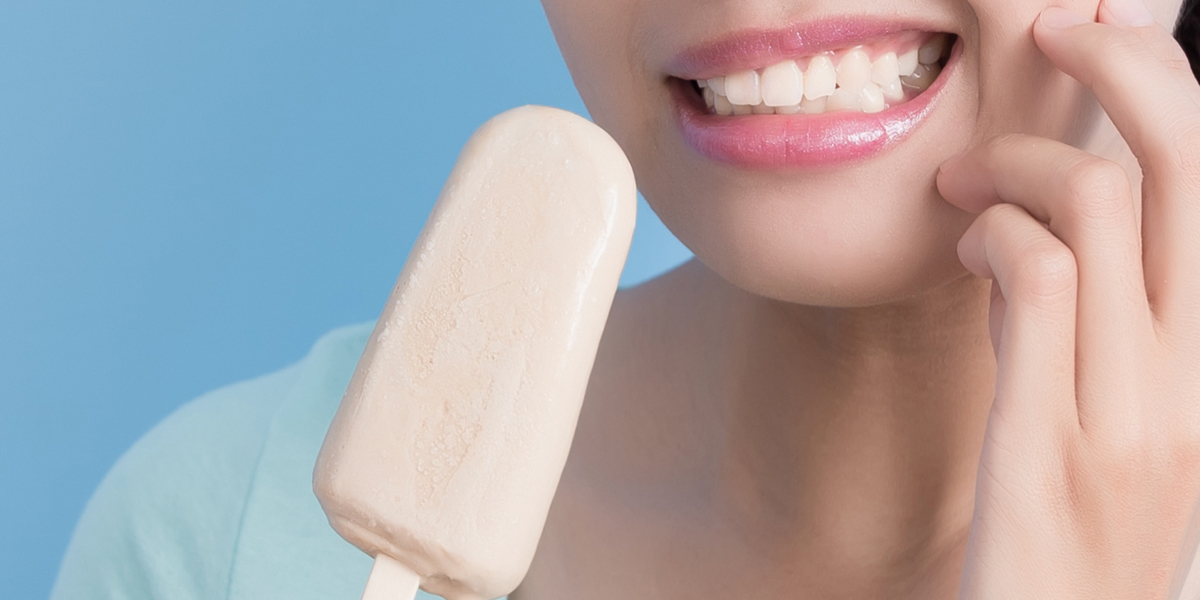
Best Remedies to Deal With Sensitive Teeth
Teeth sensitivity is a common dental problem in both adults and children. Teeth sensitivity can develop because of a variety of issues. Eating an unhealthy diet, practicing poor oral hygiene, smoking, and consuming a lot of acidic foods can damage your enamel and lead to sensitivity. But if treated promptly, you can relieve discomfort, strengthen the tooth enamel, and improve your overall dental health.
If you experience pain and discomfort in your teeth when you eat something cold, hot, or acidic this can indicate that your enamel has weakened. Try these 8 remedies to treat teeth sensitivity and improve your dental health.
1. Use a soft toothbrush
If you have sensitive teeth, it is recommended to avoid using a hard toothbrush. Hard bristles and aggressive teeth cleaning techniques can damage tooth enamel, making it weaker and more vulnerable to bacteria.
Replace your hard toothbrush with a softer one. A soft toothbrush is unlikely to damage your teeth enamel. If you aren’t sure about the toothbrush you need to use, consult your dental care practitioner.
2. Practice good oral hygiene
Proper dental hygiene is crucial to prevent and treat teeth sensitivity. To maintain healthy teeth, brush your teeth twice a day and use an antibacterial mouthwash.
Flossing your teeth daily is just as important. Flossing helps eliminate plaque and food particles that are stuck between your teeth. When they aren’t removed properly, food particles can promote bacteria accumulation. Bacteria produce acids that dissolve enamel, making your teeth sensitive.
3. Use toothpaste with fluoride
Toothpaste for sensitive teeth – If your teeth are already sensitive, using toothpaste with fluoride can help strengthen the enamel and reduce sensitivity. Fluoride is a mineral that is readily incorporated into the teeth’ mineral structure, thereby making them stronger and more bacteria-resistant. When buying toothpaste, look for one with fluoride as the main compound to promote your dental health.
4. Improve your diet
Diet plays a crucial role in your dental health. Along with foods, you get important vitamins and minerals that help strengthen tooth enamel. Not getting enough nutrients from your diet can take a toll on the health of both teeth and bones. Besides, eating high-sugary foods promotes bacteria breeding. The overgrowth of bacteria in your oral cavity is a major risk factor for teeth sensitivity.
Include more fresh fruits, vegetables, leafy greens, and foods with healthy fats in your diet. They can provide you with nutrients necessary for healthy teeth and gums.
5. Quit smoking
Smoking is extremely bad for your overall health. But it can also increase your risk of teeth sensitivity. Along with cigarette smoke, you inhale thousands of chemicals that remain on your teeth. They damage your tooth enamel making it sensitive to hot, cold, and sensitive foods. Quitting smoking can help you improve your dental health significantly.
6. Avoid using your teeth as a tool
Using your teeth as a tool is one of the worst things for your dental health. Using your teeth to open packages or crushing ice can damage your enamel significantly. If you have a bad habit of using your teeth as a tool, try to ditch this habit in pursuit of your dental health.
7. Avoid using abrasive toothpaste
Using toothpaste with abrasive particles can damage your tooth enamel. If your teeth are sensitive, avoid using abrasive toothpaste. Replace it with special toothpaste for sensitive teeth. It contains compounds that don’t damage teeth enamel and even strengthen it.
8. Visit your dentist regularly
Visiting your dentist regularly is the best way to treat teeth sensitivity and prevent other dental problems. You need to follow your annual dental appointments. An experienced dentist can help you choose the right dental care products and improve harmful dental habits.
